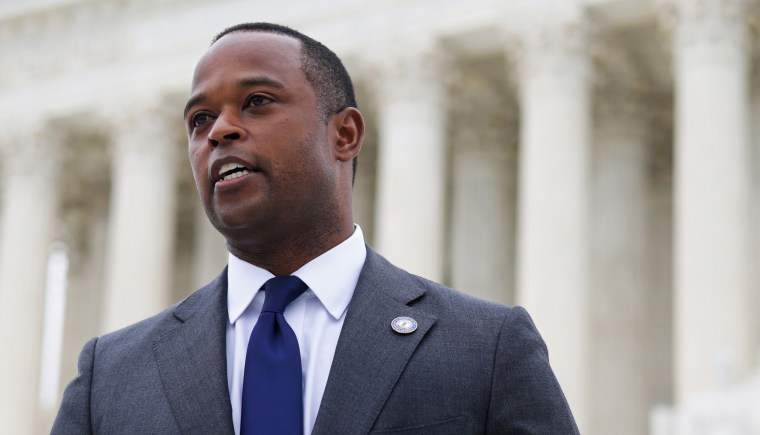Kentucky Attorney General Daniel Cameron has championed conservative health care policies in his campaign to unseat Democratic Gov. Andy Beshear. But while he advocates for work requirements for Medicaid, Cameron has said that he would not support reversing the expansion of eligibility for the health insurance program under the Affordable Care Act.
However, while campaigning for the GOP gubernatorial nomination in April, Cameron indicated that he wanted to see the Affordable Care Act undone. He filled out a questionnaire for Northern Kentucky Right to Life, where he answered "Yes" to the question: "Will you actively oppose (and if in a position to do so, work against and vote against) state or federal legislation or regulation mandating health insurance coverage of abortion (both surgical and chemical) and artificial contraception, and will you actively support (and if in a position to do so, work for and vote for) the repeal of the ACA (Obamacare)?"
Cameron's answer to the questionnaire has not been previously reported, and it's at odds with what he's said about Medicaid on the campaign trail, which has focused on adding work requirements for able-bodied people.
“Medicaid should not be a program that people stay on for the remainder of their life, especially if they can work. It needs to be transitory, so that we can save it for other folks that actually need it," Cameron said at a candidate forum during the GOP primary in April, the same month the questionnaire was released.
If an effort to repeal the ACA federally was successful, the 2014 state Medicaid expansion would be invalidated.
According to the Kaiser Family Foundation, Medicaid enrollment in Kentucky jumped 95% from the period before the ACA was passed to January 2016. As of September 2022, over 600,000 people in Kentucky were enrolled in Medicaid as part of the ACA expansion.
Asked for a comment on the questionnaire, Cameron echoed his earlier remarks in a statement to NBC News.
"As governor, I will make sure our most vulnerable are taken care of, while getting able-bodied people back to work,” he said.
Health policy has already been a flashpoint in the race. Democrats are attacking Cameron for the work requirement plan he touts on the trail.
A narrator in a TV ad run by a group affiliated with the Democratic Governors Association alleges that "Cameron threatens to take away coverage from over 95,000 Kentuckians."
Beshear, the Democratic incumbent, has been a proponent of increasing the scope of the state's Medicaid program.
He expanded Kentucky's Medicaid to cover dental, vision and hearing services (though that move was later rolled back by the Republican state legislature) and signed a bill that would increase Medicaid payment rates for outpatient procedures performed at hospitals, which partially helps to increase funding to hospitals in the state.
When he ran for governor in 2019, Beshear bested then-Gov. Matt Bevin, a Republican.
Bevin repeatedly tried to impose certain work requirements for Medicaid, a move that was rejected by federal judge.
The TV ad from Defending Bluegrass Values, the DGA-backed group, ties Cameron's plan to Bevin's, with a narrator telling viewers that, "Cameron says he absolutely supports bringing back Matt Bevin's ruthless Medicaid plan."
In addition to the question regarding the ACA, the other questions Cameron answered for Northern Kentucky Right to Life largely dealt with abortion and birth control.
He answered "yes" to questions about supporting codifying personhood from the moment of fertilization in the U.S. Constitution; criminalizing providers who perform abortions (except in cases to save the life of a mother); and supporting legislation to forbid "all use of local, state, federal, and/or Medicare or Medicaid funds for abortion." The questionnaire's definition of abortion includes "the so-called 'morning after pill,' Norplant, Depo Provera, or the so-called 'standard birth control pill.'"

